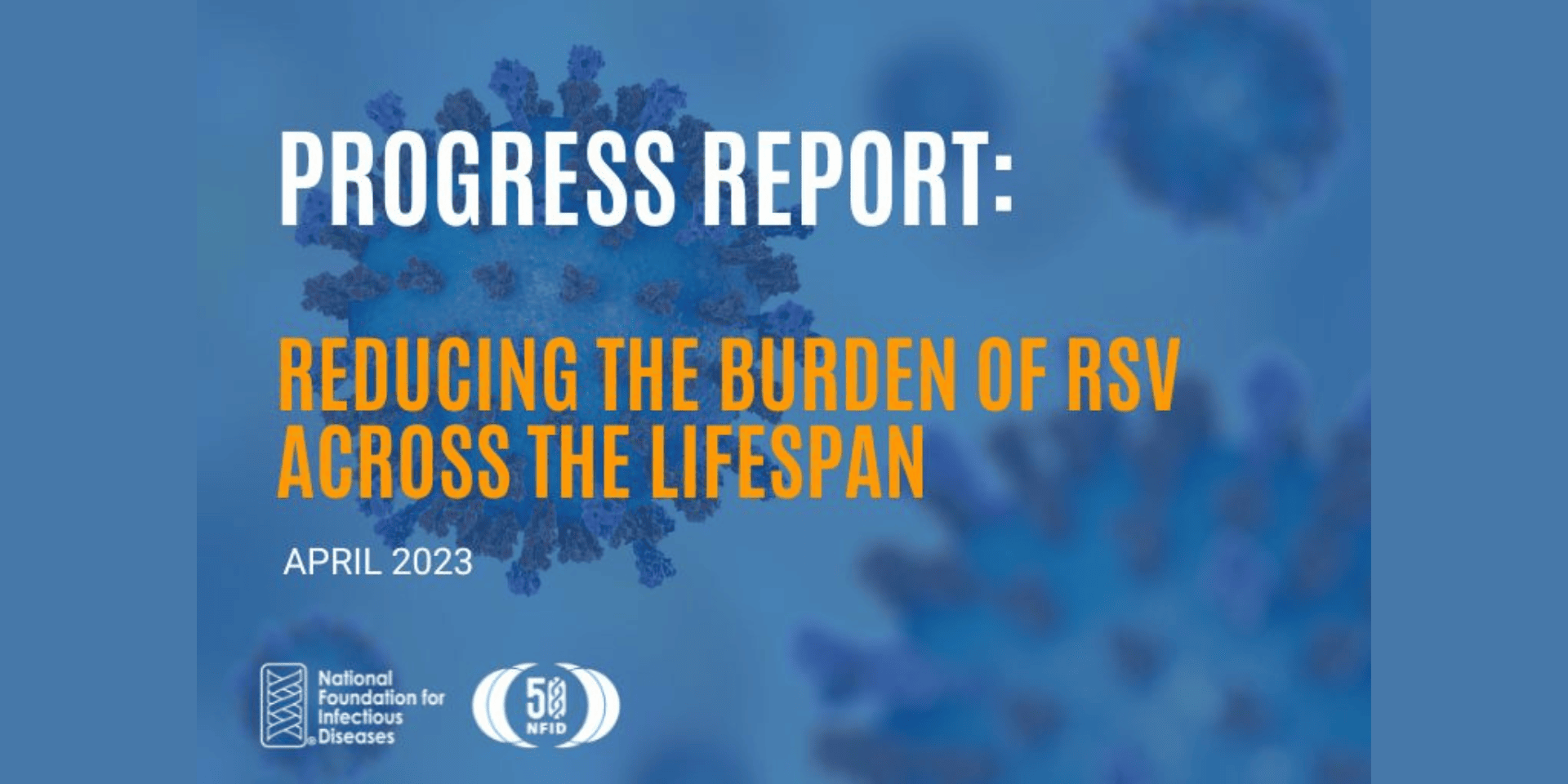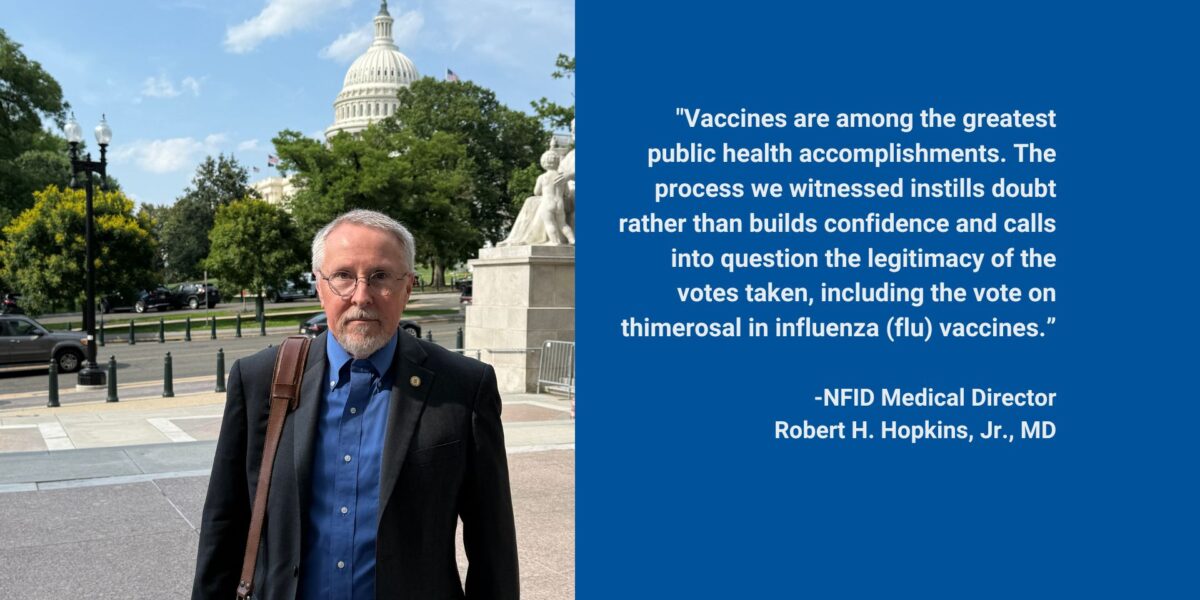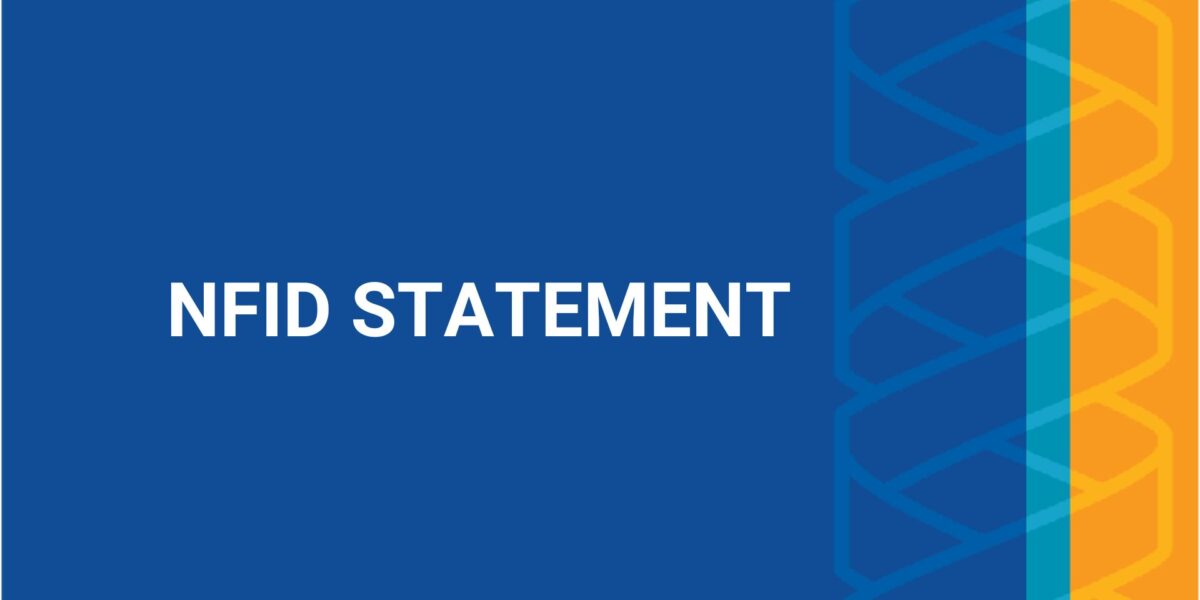Recent Press Releases
Statement on June 2025 Advisory Committee on Immunization Practices Meeting
NFID strongly supports the use of evidence-based guidance reviewed by qualified experts, within CDC and externally, to inform public health policy, and will work to protect the health of people across the US …
NFID Statement on the Importance of Federal Advisory Committees in Protecting Public Health
The National Foundation for Infectious Diseases (NFID) underscores the vital role that federal advisory committees play in informing public health decision-making and providing expert, evidence-based guidance on public health issues, including critical interventions to prevent infectious diseases
New National Survey Finds Nearly Half of US Adults Admit to Not Washing Their Hands at Key Moments
2025 NFID State of Handwashing Report finds that many US adults forget or choose not to wash their hands at key times when germs can easily spread




